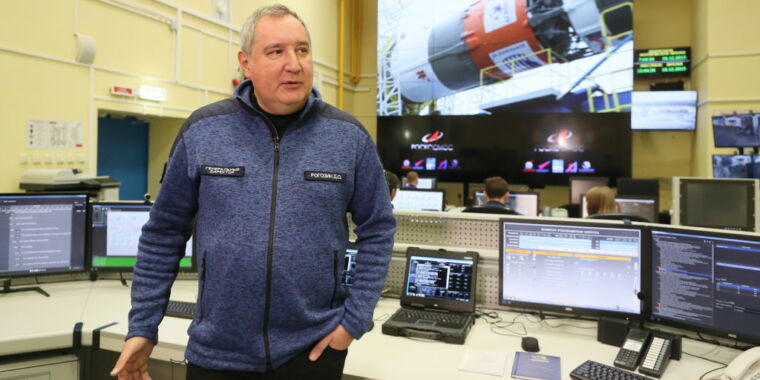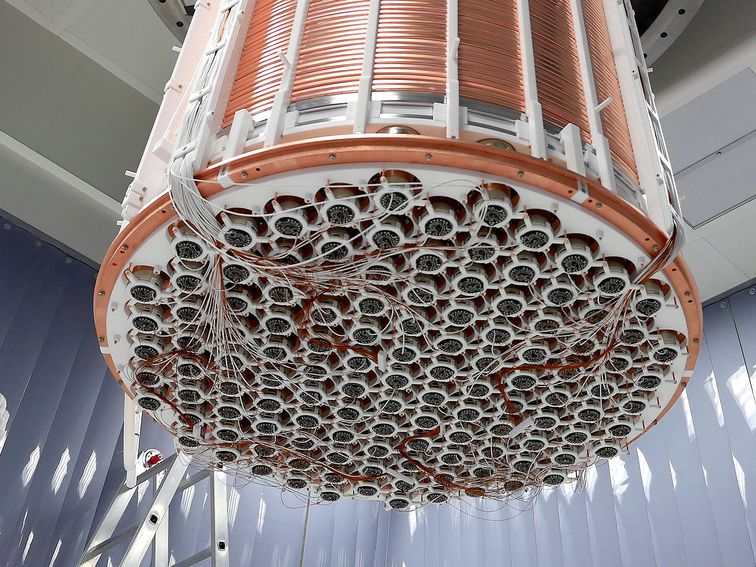Science Tips Tips Tricks Technology Russia’s space leader seems pretty bitter about SpaceX’s success

Science Tips Tips Tricks Technology
Enlarge / Roscosmos head Dmitry Rogozin visits the control center for a launch pad for the Soyuz-2 carrier rockets at the Vostochny Cosmodrome.
Yegor AleyevTASS via Getty Images
In the 10 days since SpaceX launched humans into orbit—returning to NASA the capability to get its own astronauts into space—Russian officials have offered a mixed reaction. However, a clear trend seems to be emerging—a minimization of SpaceX’s achievement and pointing to Russia’s own bright future in space.
During a post-launch news conference on May 30, SpaceX founder Elon Musk cheekily said, “The trampoline is working.” This was a dig at the head of the Russian Space Corporation, Dmitry Rogozin, a former Russian defense official who was sanctioned in 2014 as part of the US response to Russia’s aggression in Ukraine. At the time, when the US relied on the Russian Soyuz vehicle to get into space, Rogozin suggested on Twitter that NASA could use a trampoline to get into space if it didn’t like working with Russia.
After Musk’s most recent comments, Rogozin initially went along with the joke, saying he was amused by it: “Please convey my sincere greetings to @elonmusk (I loved his joke) and @SpaceX team. Looking forward to further cooperation!”
Science Tips Tips Tricks Technology Change in tone
This was all well and diplomatic. However, in reality it seems more likely that Rogozin was stung by this “joke.” A couple of days later, Rogozin ended his personal Twitter account, changing its handle to an official Roscosmos account and deleting some of his more inflammatory tweets. Sadly, the old, fiery Rogozin is gone from Twitter. At least for now.
But he, himself, is clearly not gone. Earlier this week, Rogozin authored an op-ed in Forbes about Crew Dragon and Russia’s plans in space. Roscosmos has since published an English version, and in it Rogozin is far less complimentary of SpaceX and NASA.
Rogozin says SpaceX is no different from any other space company, having received “colossal funds” for Crew Dragon, that the spacecraft is very heavy, and that the Americans ought to be damned grateful that Russia got them into space for nine years. None of this is particularly untrue, but Rogozin’s words seem angry and defensive.
“Elon Musk did not bring us down—he brought down his compatriots from Boeing passing them with the beginning of the flight tests,” Rogozin said. “This war is theirs, but not ours.”
Interestingly, he also admits that the Russians price gouged NASA for access to space. Although Rogozin says Roscosmos earned “honest” money for the Soyuz spaceflights, he takes issue with the notion the Crew Dragon is cheaper than a Soyuz. (According to NASA, the price per seat for Crew Dragon is $55 million. During its last round of negotiations, the space agency paid more than $90 million to Russia for a Soyuz seat).
“The cost of our launches is substantially lower than the American,” Rogozin said. “The sirs seem to confuse launch cost price and launch service price that is formed by the market. Hence, I insist that Soyuz MS spacecraft with the Soyuz-2.1a carrier rocket was and still remains unchallenged—whatever our competitors say.”
Science Tips Tips Tricks Technology Space rifle
Much of the rest of the op-ed is given over to talk about all of the great things that Russia is doing in space—even comparing the Soyuz spacecraft to master Italian Renaissance artists such as Leonardo da Vinci, Michelangelo, and Titian, and alternatively as our “space Kalashnikov rifle.”
This bluster about the future of Russian space has been accompanied on social media. For example, last Friday, Rogozin’s rebranded Twitter account tweeted excitedly about the company’s next generation “Oryol” spacecraft. The tweet showed pictures of an “escape” test in case of an emergency water landing. In reality, the photos showed some people using a rope to climb down from a mock-up of Oryol, which has been perpetually in development and may never fly. Moreover, Russian space journalist Anatoly Zak said this “news” was a reprise of a test that took place seven years ago.
Similarly, Roscosmos’ chief of media relations, Vladimir Ustimenko, recently said the country was going to start testing two new missiles and would soon resume its lunar exploration program. However, this story appears to have been published with photos of an old Baikal concept booster from twenty years ago.
The pattern here seems pretty clear. In the wake of success by SpaceX and NASA, Roscosmos feels the need to make announcements about its own impending breakthroughs. Whether or not they materialize, well, we won’t be holding our breath.




